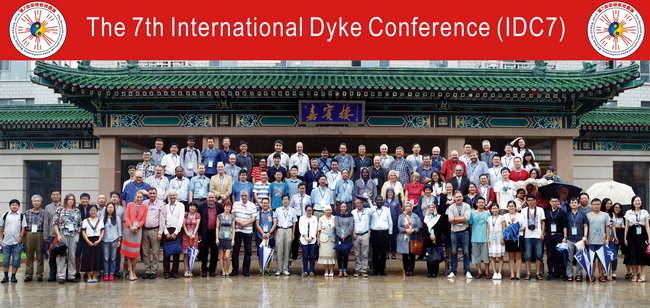The Seventh International Dyke Conference (IDC7) was held by State Key Laboratory of Lithospheric Evolution, IGG, in Beijing on 18-20 August.
The theme of the IDC7 was ‘Dyke Swarms: Keys to Paleogeographic Reconstruction’. It covered 10 key subjects of dyke research from mapping of dykes using remote sensing techniques (e.g., aeromagnetic data, LANDSAT, radar), to the role of giant dyke swarms in the reconstruction of supercontinents/paleocontinents, to the emplacement mechanism of dykes, and dyke geochronology and links to mineralization and resources.
The meeting involved about 150 participants from 17 countries, including particiapnts from Africa, Asia, Australasia, Europe, and North and South America.. The conference received 140 abstracts. During the three-day-conference, 65 oral presentations, including 16 keynotes and 17 invited talks, as well as 51 posters were presented. These presentations are representatives of the most recent results and development in the field of dyke research. About one third of these presentations were by young scientists and students.
August 14-17 and 21-24, 50 delegates participated in one of three field trips organized for the conference. As a part of the conference, the Committee of IDC7 awarded Prof Henry C Halls the “2016 IDC Medal”, for his role as the major founder of the IDC series, Four young scientists were awarded Best Oral/Poster Awards for their work. Two graduate students from China won the Awards.
The IDC7 continues the five-yearly meeting, which began in Toronto, Canada in 1985 (University of Toronto). Subsequent IDCs were held in Australia (1990), Israel (1995), South Africa (2001), Finland (2005), and India (2010). Morocco will host the Eighth International Dyke Conference in 2020. The IDC series is the highest-ranked international conference on dykes and related geology, geophysics and geochemistry researches.
